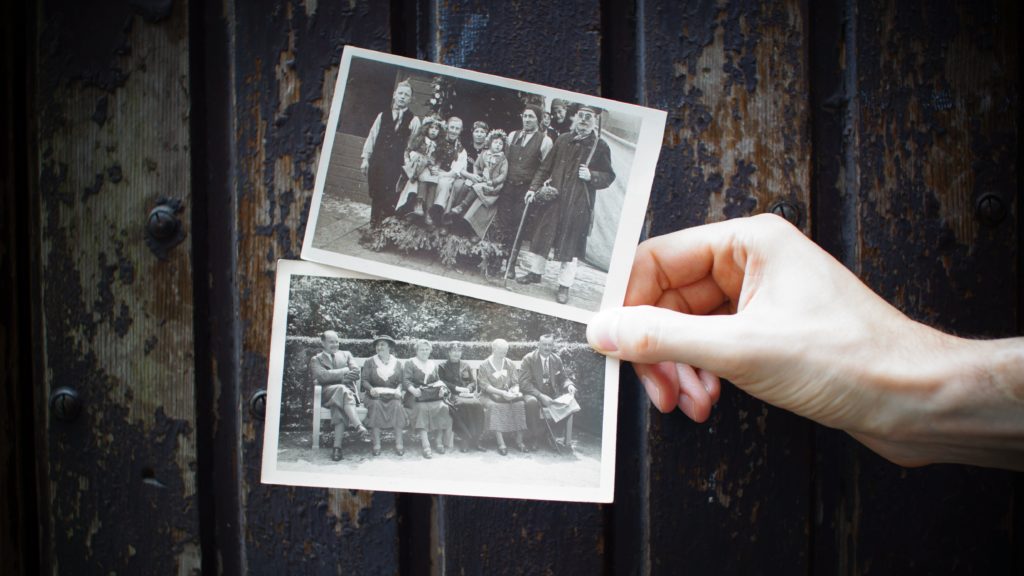I stood in the kitchen with my uncles and dad on Christmas Eve of my sophomore year of college. Nothing is off limits in our family conversations, and a controversial issue surfaced. It was a topic that had come up in a college class the previous semester. I posed some “what if” questions about the topic, asking the opinions of my family and explaining that I had started seeing the issue differently than the view I had grown up hearing.
My uncles listened to me, then one of them turned to my dad. “She’s left the nest,” he said, with a smile on his face.
That conversation showed me an obvious truth about family relationships: They change as we change.
As a child and teenager, living at home with my parents, what it meant to live out God’s commands was always clear to me. I was in my parents’ home and under their authority. I was commanded to obey them and they were called to teach me the ways of the Lord and instruct me how to follow Him.
I’m now a 26-year-old woman living in a city two hours away from my hometown, working in a career I love, managing a household and awkwardly attempting to live out my fierce convictions about the gospel. My family members have experienced just as many changes as I have.
The process of learning how to relate to my family as an adult woman is messy and rarely straightforward. Last time I looked, there aren’t any chapters in my Bible titled, “Instructions for Loving Your Family as an Adult.” Yet, Scripture teaches how to love others as Christ loved us. Here are four things I’ve learned so far on the topic of adult family relationships.
1. Know God and yourself
A robust knowledge of God and His deep love for creation is foundational for building healthy family relationships. Anne Lamott writes: “You can safely assume you’ve created God in your own image when it turns out that God hates all the same people you do.”
I often make God into my own image by ascribing to Him my political, religious and social beliefs, and using those beliefs as a stick to measure others. When I understand who God is, my notion of who He likes and who He doesn’t like is turned on its head. A cursory look at the Gospels shows that Jesus cared about the rich and the poor, the outcast and the powerful, the religious and the non-religious.
Whether you look at who we voted for, where we live or what we do for fun, my husband and I make countless decisions that differ from those of our family members. When I let Scripture inform my knowledge of God and how He loves people, I am able to humbly and kindly handle and discuss differences between my family and myself.
2. Seek peace
In the midst of conflict or differing opinions, my mode of operation usually goes something like this: Ensure my views are perfectly understood. Make sure that my intelligence and thoughtfulness are acknowledged. Prove my rightness. In the name of Jesus, of course.
When I read the Beatitudes, I’m stopped dead in my tracks. “Blessed are the peacemakers, for they shall be called sons of God” (Matthew 5:9). I want to be called a child of God, but instead of making peace, I’m bent toward making myself known as thoughtful, and most importantly, right.
“The whole history of redemption, climaxing in the death and resurrection of Jesus, is God’s strategy to bring about a just and lasting peace between rebel man and himself, and then between man and man,” writes John Piper. “Therefore, God’s children are that way, too. They have the character of their Father. What he loves they love. What he pursues they pursue. You can know his children by whether they are willing to make sacrifices for peace the way God did.”
What does this look like practically in our family relationships? At the end of Matthew 5, Jesus discusses what it looks like to love your enemy. He instructs His followers to greet their enemies, noting that even the Gentiles greet their own brothers. Piper goes on:
“Peacemaking tries to build bridges to people. It does not want the animosity to remain. It wants reconciliation. It wants harmony. And so it tries to show what may be the only courtesy the enemy will tolerate, namely, a greeting. The peacemaker looks the enemy right in the eye and says, ‘Good morning, John.’ And he says it with a longing for peace in his heart, not with a phony gloss of politeness to cover his anger.
We can cultivate peace in our family relationships by refusing superficiality and our own agendas, and choosing to build bridges. This election season, my mom and I had one intense discussion after another about our differing political opinions. We talked about racism, women’s rights, abortion and national security. We voted differently and there are topics we disagree about. Yet, I changed through talking with someone outside of my “echo chamber.” The conversations built bridges.
3. Pursue service and embrace our limits
When gathering with my family and my husband’s family, I fall into the habit of thinking about what I want to do, when I want to do it and how I want to do it. I enter gatherings with an expectation of being served, and grow frustrated when my needs aren’t considered or my expectations aren’t met.
In my first year of marriage, I recalled a Bible verse I memorized in college: “For even the Son of Man came not to be served but to serve, and to give his life as a ransom for many” (Mark 10:45).
Making service my goal re-frames how I view my time with family. Serving looks like helping with the dishes after dinner when I’d rather read a book. Serving looks like saying yes to participating in a family outing even though I wasn’t asked about it. Serving looks like figuring out the best way to love family members even if it isn’t my love language.
As we serve, we also need to understand our own limits. We are finite beings created with unique strengths and needs. Communities — and a family is a community — work well when mutual respect and practical love is demonstrated for their members.
“When you judge yourself for needing help, you judge those you are helping,” writes Brené Brown. “When you attach value to giving help, you attach value to needing help…offering help is courageous and compassionate, but so is asking for help.”
Serving our families and embracing our finiteness are not at odds. Living within and voicing my God-given limits is an act of humility and cultivates a culture of caring for one another.
4. Look for beauty and joy
When my friends and I gather to talk, we gravitate to talking about the hard aspects of family relations. Talking through challenges is important, but I start dwelling on the the difficult beyond the point of constructive. The way I talk about my family shapes the way I view my family and our interactions.
As I’ve recently chatted with friends about how the holidays went, I’ve made an effort to note the happy alongside the hard. Whether it be enjoying a family wedding and reception together, laughing over a board game, compassionately discussing life challenges or showing each other our new cities of residence, there is beauty to behold in family, and I want to have an eye for that beauty.
I count myself deeply fortunate for the families God has given me and my husband. We certainly have differences, disagreements and frustrations, but our challenges are those of normal life this side of the Fall. I write this article to those in a similar position as myself. For many, family is not a place of safety and love. If that is your story, I encourage you to seek professional and pastoral counsel.
In the moments of frustration and hurt — whether your family is a source of blessing or pain — there is opportunity for the Christian to cultivate joy. Tim Keller explains that sadness pushes Christians to go to the gospel and consider what Jesus has for them. He writes:
“A Christian is both happier and sadder at the same time. The gospel makes you a far more sensitive person, a far more feeling person, but at the same time a person who is feeling because you’re more hopeful than anybody else, a person who is able to sense and see the grief because you have a joy unspeakable and full of glory.”
The families we are placed in — whether through biology, adoption or marriage — are not a matter of chance. They are ordained by our heavenly Father. May we embrace these relationships with confidence that He is at work through them.
Copyright 2017 Abigail Murrish. All rights reserved.












